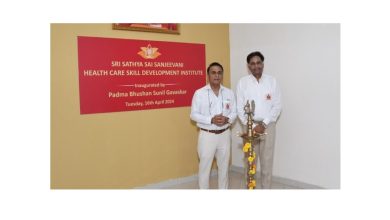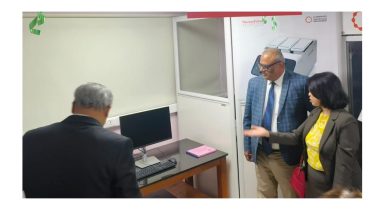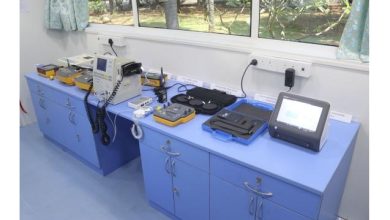LV Prasad Eye Institute ties up with global partners to explore the impact of vision care

The study has received funding support of £3.5 million from the Wellcome Trust and Chen Yet-Sen Family Foundation
LV Prasad Eye Institute in collaboration with the Queen’s University of Belfast, along with nearly 30 other partners from the US, the UK, Vietnam, Bangladesh, Zimbabwe and India, is working on a suite of studies to explore the impact of vision care on the global level to achieve Sustainable Development Goals in low and middle-income countries. The study has received funding support of £3.5 million from the Wellcome Trust and Chen Yet-Sen Family Foundation.
Led by Professor Nathan Congdon of Queen’s University Belfast (QUB) in the UK and Dr Rohit Khanna of the LV Prasad Eye Institute (LVPEI), various universities, schools non-government organisations, public health bodies, government ministries, institutions and patient groups are part of the multi-disciplinary study team. From LVPEI, Senior Public Health Specialists – Dr Srinivas Marmamula and Asha Latha Metla and Senior Retina Consultant – Dr Raja Narayanan are also part of the study.
The other collaborators from India include Dr Suvarna Alladi from NIMHANS at Bengaluru, Dr Pallab Maulik from The George Institute for Global Health India at New Delhi and Shashidhar Komaravolu from the Alzheimer’s and Related Disorders Society of India, Hyderabad Deccan Chapter.
“Termed as ENGINE (Eyecare Nurtures Good-health, Innovation, driving-safety and Education), it is a five-year project designed to leverage high-quality research results to drive lasting policy change and achieve an improved quality of life for people in low and middle-income countries. ENGINE comprises four research trials in India, Vietnam, Bangladesh and Zimbabwe, to examine the impact of glasses on promoting better living, from childhood to old age, and the impact on multiple SDGs,” says Dr Rohit Khanna, Director, Gullapalli Pratibha Rao International Centre for Advancement of Rural Eye care (GPR ICARE), LV Prasad Eye Institute.
The four research projects that are part of this study are:
· CLEVER (Cognitive Level Enhancement through Vision Exams and Refraction) that supports the Indian government’s strategy of finding scalable, low-cost means of preventing dementia. This project is built upon the work done in homes for the aged project funded by Wellcome Trust India Alliance.
· STABLE (Slashing Two-wheeler Accidents By Leveraging Eyecare) that will assist local partners, including the Vietnamese Ministry of Transport, to combat Vietnam’s twin epidemics of uncorrected short-sightedness and motorcycle crashes in the young.
· ZEAL (Zimbabwe Eyecare and Learning) will work with local partners who currently implement the Zimbabwe government’s national school vision project to explore how targeting long-sighted children with the novel, low-cost screening can add to the academic impact of the programme.
· THRIFT (Transforming Households with Refraction and Innovative Financial Technology) that will capitalise on the Bangladesh government’s novel and forward-looking plan to digitise all social safety net payments to the elderly by providing free glasses and training to help them better cope with unfamiliar smartphones, thus improving financial independence.
“ENGINE’s local partners in academia, civil society and government are well-placed to ensure that this project drives similar policy action, changing lives and helping achieve the SDGs in these four countries and beyond,” says Professor Nathan Congdon of Queen’s University Belfast and Director of Research at Orbis International, the study’s principal investigator.
“The study happening in India and Vietnam are the first trials of their kind, examining how low-cost vision care can slow the pace of cognitive decline with ageing and deliver safe roads in low-resource settings,” added Dr Khanna.
“This research programme represents a watershed moment in proving the importance of addressing vision correction throughout the life course and development agenda,” concludes James Chen, Chairman, Chen Yet Sen Family Foundation.




